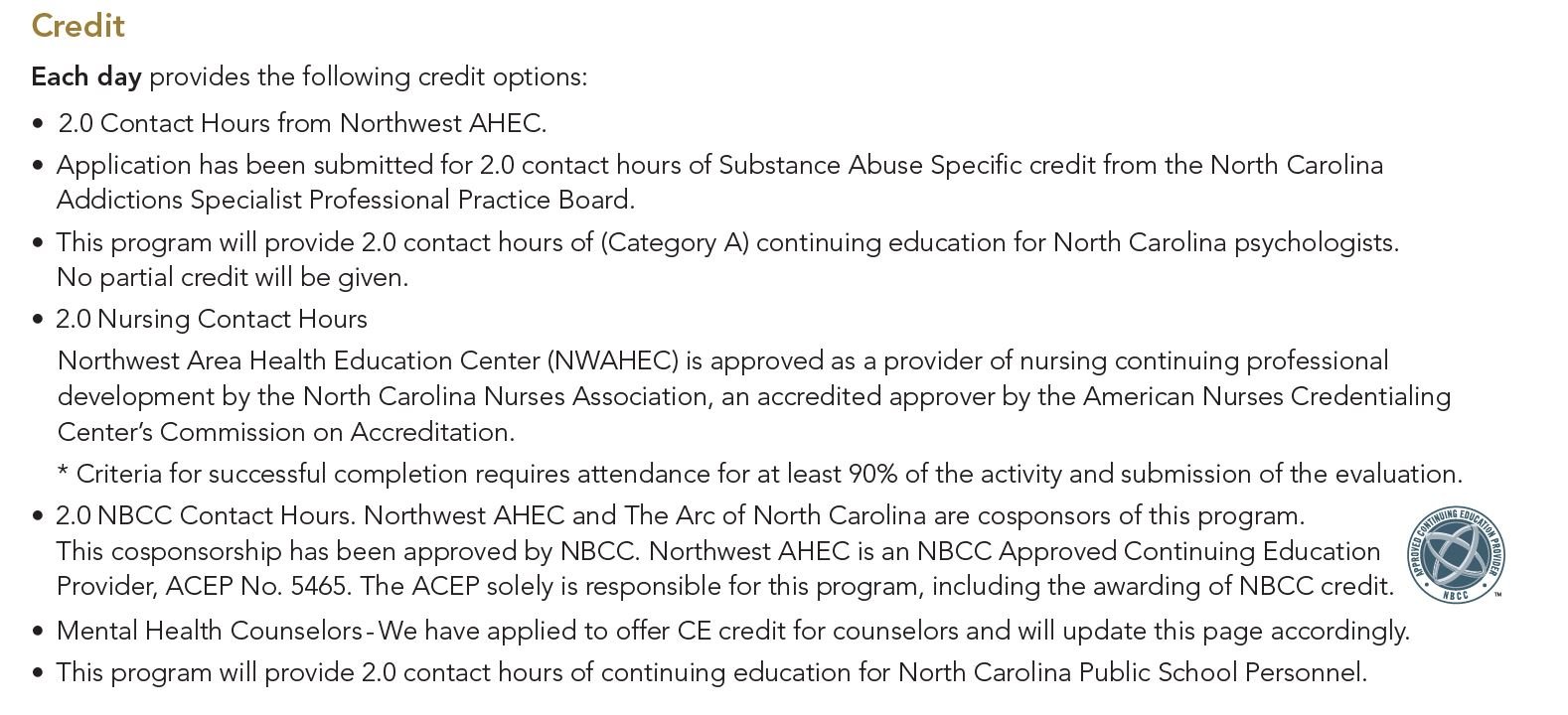Nov. 30, 2021 / 10am – 12:15pm - The Impact of Fetal Alcohol Spectrum Disorders (FASD) in Substance Use Treatment
Dec. 2, 2021 / 10am – 12:15pm - Improving Outcomes in Substance Use Treatment by Modifying Approaches for Individuals with Fetal Alcohol Spectrum Disorders (FASD)
Webinar Series ONLY - View this live event from your device. Participants are expected to attend both days.
.png?width=1200&name=FASDinNCWebinar2%20(2).png)
The Impact of Fetal Alcohol Spectrum Disorders (FASD) in Substance Use Treatment Nov. 30, 2021 / 10am – 12:15pm
Overview and Objectives
When an individual has behaviors that cause difficulty in treatment settings, we often label the person as being noncompliant, unmotivated, or disruptive. When they are back in treatment numerous times, we say that they are not ready for sobriety. However, their behavior may well be due to brain damage caused by prenatal alcohol exposure, which is much more common than most people suspect. Due to this damage, which spans the intellectual spectrum, evidence based practices that rely on verbal interactions and reward and consequence systems are often not successful with them and set
them up to fail. The majority of those with an FASD are not diagnosed and many have been misdiagnosed. As a result, typical interventions for them in substance use and mental health treatment, corrections, child welfare, and other systems of care are often ineffective and are frequently contraindicated.
This presentation addresses the importance of recognizing an FASD in individuals in substance use treatment. The brain damage seen in FASD is examined and a method to identify those with an FASD is described.
Upon completion of this program, participants will be able to:
- Identify structures of the brain that are commonly affected in individuals with an FASD.
- List reasons for the reluctance in identifying the impact of FASD in treatment.
- Describe an approach to identify individuals with a probable FASD.
Registration link: Register online at www.northwestahec.org/66332
Improving Outcomes in Substance Use Treatment by Modifying Approaches for Individuals
with Fetal Alcohol Spectrum Disorders (FASD) Dec. 2., 2021 / 10am – 12:15pm
Overview and Objectives
This presentation builds on the first FASD webinar that discusses the impact of FASD in substance use treatment, reasons individuals with an FASD often “fail” in treatment, and a method to identify them. In this presentation, we discuss why typical treatment approaches are often ineffective with those with an FASD and how treatment can be modified to improve outcomes for these individuals, their families, the agencies that work with them, and the State systems that fund these agencies.
Upon completion of this program, participants will be able to:
- Discuss why typical reward and consequence approaches such as level, privilege, and pass systems, are ineffective for many individuals with an FASD.
- Describe how strategies within motivational interviewing can be modified to be effective for those with an FASD.
Registration link: Register online at www.northwestahec.org/66771
Who Should Participate
Substance abuse prevention and treatment specialists, nurses, mental health counselors, psychologists, educators, social workers, other health care professionals and others interested in the care of families affected by FASD.

Provided by:
Northwest Area Health Education Center (AHEC), a program of Wake Forest School of Medicine and part of the NC AHEC System and The North Carolina Fetal Alcohol Prevention Program supported through The Arc of North Carolina. Proof Alliance NC is a contract program with the NC Department of Health & Human Services | Funded by the SAMHSASAPTBG 2B08T.



